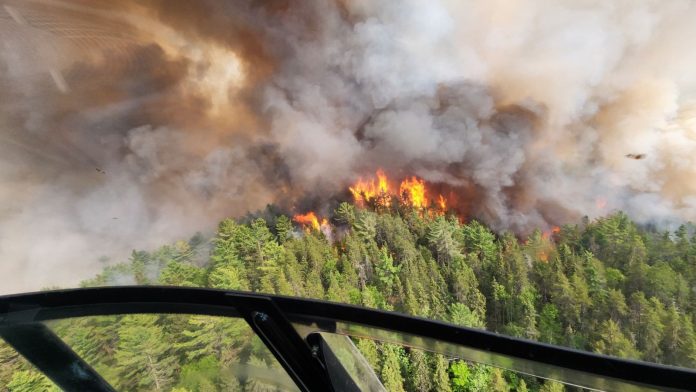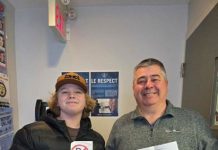Canada is facing unprecedented impacts from forest fires this year, with the increased intensity of this year’s wildfire season being felt by communities across the country. The Government of Canada continues to work with provinces, territories and other partners to assist those who have been forced from their homes or have been impacted by smoke, heat and other challenges.
As Canadians help each other through these challenges, it is important to know what we can do to protect ourselves and our families. Wildfires produce thick smoke that can lead to both minor and more serious health issues. Smoke can travel hundreds or thousands of kilometres from the fire zone, so even if you’re not close to a fire, you can still be affected by the smoke. There is no safe level of exposure to wildfire smoke as it can pose a risk to your health even at very low levels.
Everyone is at risk from wildfire smoke but especially young children, people who are pregnant, people who smoke, seniors, people involved in outdoor work or sports and people with existing illnesses or chronic health conditions, such as lung or heart conditions and diabetes.
To help protect ourselves and our loved ones, there are certain actions we can take to limit our exposure to the harmful wildfire smoke, including:
- Pay attention to the Air Quality Health Index (AQHI) or other indicators of smoke levels in your area to help identify your level of risk and actions you can take to protect your health. Take note of any special air quality statements issued as part of your weather forecast.
- Limit outdoor activity and strenuous physical activities as much as possible when the air quality is affected by smoke.
- If you can, protect your indoor air from wildfire smoke by keeping windows and doors closed, and using a clean good quality air filter in your ventilation system. If possible, consider using a portable air purifier to remove smoke from your home and/or turning on your air conditioning.
- If it’s difficult to find clean, cool air, contact your local jurisdiction for information on local cooling and clean air spaces. This is also something you can do during extreme heat events.
- If you must spend time outdoors, consider wearing a well-fitted respirator type mask such as a NIOSH certified N95 or equivalent respirator.
- Take care of your mental health during a wildfire smoke event. Anyone who is having trouble coping with symptoms of stress, anxiety or depression should seek help from a health professional.
Health Canada and the Public Health Agency of Canada are working with other federal departments, such as Indigenous Services Canada, Public Safety and Environment and Climate Change Canada, as well as provincial and territorial partners, to reduce the risks to people in Canada from air pollution created by wildfire smoke. This includes providing advice, health and environmental information to the public through the AQHI, as well as helping health jurisdictions create and manage cleaner air spaces by providing technical expertise, public health guidance, and air quality monitoring equipment when requested.
In addition to providing information and public health guidance on layers of protection, we are also working with provinces and territories, as well as community organizations such as The North West Company to facilitate the availability of NIOSH certified N95 respirators for vulnerable populations.
To boost air quality monitoring capacity, Health Canada has sent 6 air quality monitors to Nova Scotia and 24 to Quebec. We have also provided two monitors to the Yukon, with additional sensors to follow later this month. These will be used by long-term care facilities and hospitals to test both indoor and outdoor air. In response to a request from British Columbia First Nations Health Authority, Health Canada is procuring an additional 25 indoor air quality monitors.
More broadly, the Government of Canada is supporting affected First Nations through the Emergency Management Assistance Program, and is also working with partners to match funds from donors to support those affected by the fires.








